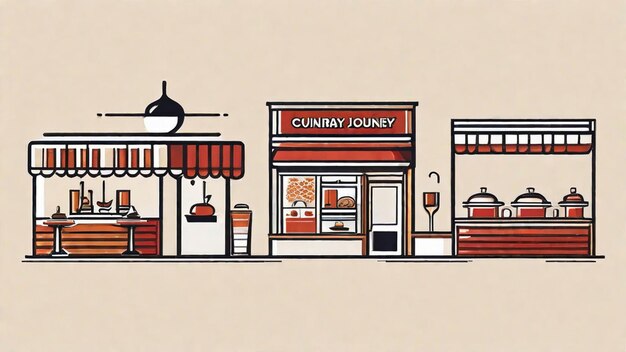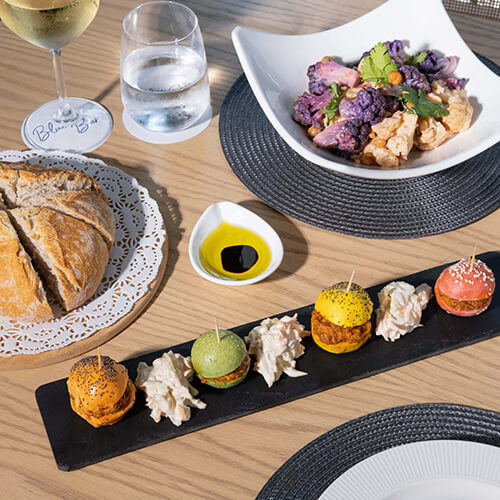

Hotel Restaurants offer a unique culinary journey, combining the ambiance of a fine dining experience with the convenience of your hotel stay. Imagine savoring exquisite dishes while enjoying the comfort and services of a luxurious hotel—that’s the promise of a great hotel restaurant experience. This article explores the intricacies of this experience, identifying common issues and providing strategies for hotels to elevate their dining offerings. We’ll delve into menu design, staff training, and the importance of creating a truly memorable culinary journey for guests.
Crafting Memorable Experiences
Menu Design for Excellence
Elevating dining experiences starts with meticulously crafted menus. Consider including both signature dishes and rotating specials. This approach creates a sense of discovery and keeps the dining experience fresh. A well-designed menu is more than just a list of dishes; it’s a reflection of the hotel’s brand and values, mirroring its commitment to quality and innovation. For instance, a hotel emphasizing local cuisine could feature a special “Regional Delights” section highlighting the best of local ingredients and culinary traditions. This approach not only satisfies the guests’ desire for unique experiences but also supports local farmers and producers. A balanced menu, with a variety of options, including options for dietary restrictions and allergies will attract a broader range of guests. This could encompass vegan, vegetarian, gluten-free, or dairy-free options.
Staff Training
The Essence of Exceptional Service
Exceptional service is paramount in transforming a meal into a truly memorable experience. Well-trained staff members are not just servers; they are ambassadors of the hotel’s brand, conveying its warmth, expertise, and commitment to quality. Beyond basic service protocols, consider incorporating knowledge about the ingredients, preparation methods, and the culinary history of each dish. Such knowledge allows staff to provide informative and engaging recommendations, transforming the dining experience into an educational one. Training programs should address not only food service etiquette but also communication and problem-solving skills, allowing staff to confidently handle any guest queries or issues. This translates to better guest satisfaction and positive reviews.
Creating Ambiance
The Atmosphere of a Culinary Journey
The atmosphere of a restaurant can greatly influence the guest experience. Warm, inviting lighting, tasteful décor, and soft background music can elevate the ambience. Consider incorporating local elements into the décor to give the space a unique identity. The music should be subtle enough to create a relaxing atmosphere without being distracting. For example, a hotel positioned in a historic area could incorporate elements that reflect the region’s architectural style into its design. Such considerations can not only create an unforgettable atmosphere but also connect guests with the local culture. A carefully curated ambiance enhances the overall dining experience, subtly reinforcing the guest’s sense of occasion.
Responding to Guest Feedback
Continuous Improvement Through Review Management
Continuous improvement in restaurant quality is dependent on gathering and analyzing guest feedback. Implementing a system for collecting and acting upon guest feedback is critical to improving the guest experience. Regularly reviewing customer comments and reviews will provide valuable insights into what works and what doesn’t, identifying areas that need improvement and highlighting what is currently exceeding expectations. Surveys, feedback cards, and social media monitoring are effective ways to gather and analyze feedback. Analyzing this feedback allows hotels to make data-driven decisions, leading to improvements in various areas of the hotel restaurant experience. Understanding what guests value most helps restaurants tailor their services and offerings to create an experience that resonates deeply.
Related Post : Best Hotel In The World Adare Manor
Leveraging Technology
Streamlining Operations with Modern Tools
In today’s digital age, incorporating technology can improve efficiency and provide a more seamless dining experience. Consider using online reservation systems to simplify bookings and enhance convenience for guests. Mobile ordering apps can reduce wait times and improve the overall dining experience. Integration of digital tools into the ordering process allows customers to browse menus, choose their dishes, and modify their orders quickly and easily. Implementing a POS system streamlines order processing, payment methods, and inventory management, resulting in a faster turnaround time and less risk of errors. Integrating technology effectively optimizes operations and elevates customer satisfaction.
Frequently Asked Questions
What are the key factors to consider when designing a menu for a hotel restaurant?
Designing a hotel restaurant menu involves balancing various factors. Consider factors such as the hotel’s target market, the cuisine style, local ingredients, and dietary restrictions. A diverse menu with options for dietary restrictions, coupled with carefully curated dishes, can ensure a wide appeal. Highlighting local ingredients adds authenticity and supports local businesses. A carefully crafted menu can create a truly memorable dining experience. A restaurant menu should be a reflection of the hotel’s brand and the dining preferences of the target clientele.
How can hotels effectively manage guest feedback in their restaurants?
Hotels can manage guest feedback effectively by establishing clear processes for gathering and responding to comments. Implement systems for collecting feedback via feedback forms, online reviews, and surveys. Regularly analyze this feedback and address any recurring issues or praise. Hotels should also strive to understand the reasons behind guest complaints to identify areas for improvement and ensure guest satisfaction. Prompt and constructive responses to feedback demonstrate a commitment to quality and create a positive customer experience.
In conclusion, Hotel Restaurants offer a unique culinary experience, seamlessly blending fine dining with the convenience of your hotel stay. By carefully curating menus, ensuring exceptional service, and offering diverse options, hotels can elevate the dining experience for guests. Looking to enhance your dining experience? Explore the culinary journeys available at the hotels near you!